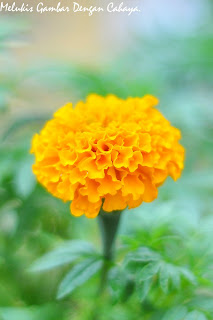THE BIBLIOGRAPHY OF IBNU BATTUTA
Ibnu Battuta’s full name is Abu Abdullah Muhammad bin Abdullah bin Muhammad bin Ibrahim bin Abdul Rahman bin Yusiff al-Lawati al Tanji. The name al-Lawati derives from the Lawata, a Moroccan Tribe who originally came from Cyrenaica in Eastern Libya. From there, various branches of the tribe came and settled in different parts of Morocco.[1]Ibnu Battuta was born in Tangier, Morocco, on Monday, Feb 24th, 1304 AD (17 Rajab 703 H)[2]. Tangiers is one of the states of Morocco, which is near the sea and had one time became the famous and important international port for the ships in 1925-1956.[3]
He was a pious and knowledgeable man in Arabic language (Arabic Grammar), Fiqh (sufficient Islamic legal knowledge) and Tassauf[4]. Ibnu Battuta’s family were themselves a Scholarly Family that had produced a number of scholars and jurists. His father and himself have been working as Qadis and Sheikhs. At the age of 22, he already completed his studies when he left Tangiers.[5] During his life he has worked in the position of Qadi (Muslim Judge) before, during and after his travels until he died in 1378 AD (779 H) [6]
Among his characters were brave, strong physique and boundless energy. This can be seen in his book, Rihlah Ibnu Batutah (Rihla), the hardship he endured, the difficulties he faced, as well as the battles which he took part in with such constancy and courage.
However, the most obvious of his personality were the great conviction held to his faith and was punctilious in performing all his religious duties, patient, honest especially in the time of trial. There is no doubt of his scholarly interest and training. If he found a famous sheikh or scholar, he was always keen to study under him and gain some knowledge from him. He also had broad-minded tolerance of the Syariah.[7] This can be seen from the aspect how he was a Maliki sect be a judge for seven years in India which majority Muslim there from the Hanafi sect[8]. Other example was he would take a wife in every town he intended to stay in. Sometimes he would marry a girl, take her with him, and not leave her until she wanted to leave him.
Another indication of his character was the speed in which he acclimatized. This can be seen from the way he adapted to the climate in which he was living, mingled with the people and adopted their customs and their ways until he became as he was part of them and had always live amongst them. In addition, his acute powers of observation and memory in recording all the facts in his travels had been acknowledged, and it is not surprise that the Rihlah Ibnu Batutah is an important record of social life, as well as of political and economic life.[9]
[1] Abdallah Guennoun, Memoirs of Important Men of Morocco, 3rd Edition, (Morocco: ISESCO, 1996), 9.
[2] Ibid.
[4] Ibid.
[5] Abdallah, op.cit. 9.
[6] Ibid. 31.
[7]Ibid.12
[8] Thalal Harb (ed),Rihlah Ibnu Battutah, al Musamma, Tuhfah an-Nazar fi Gharaib al-Amsar, (Beirut-Lubnan: Dar Kutub al-Ilmiah, 1999), 525, see also: Syed Nurul Akla Syed Abdullah & Adi Setia Mohd. Dom (trans.), Penggembaraan Ibn Battuta: valid translation from the book of Rihlah Ibn Battutah published by Dar Kutub al-Ilmiah-Lubnan, 1st Edition, (Kuala Lumpur-Malaysia:IKIM, 2003), 602.

